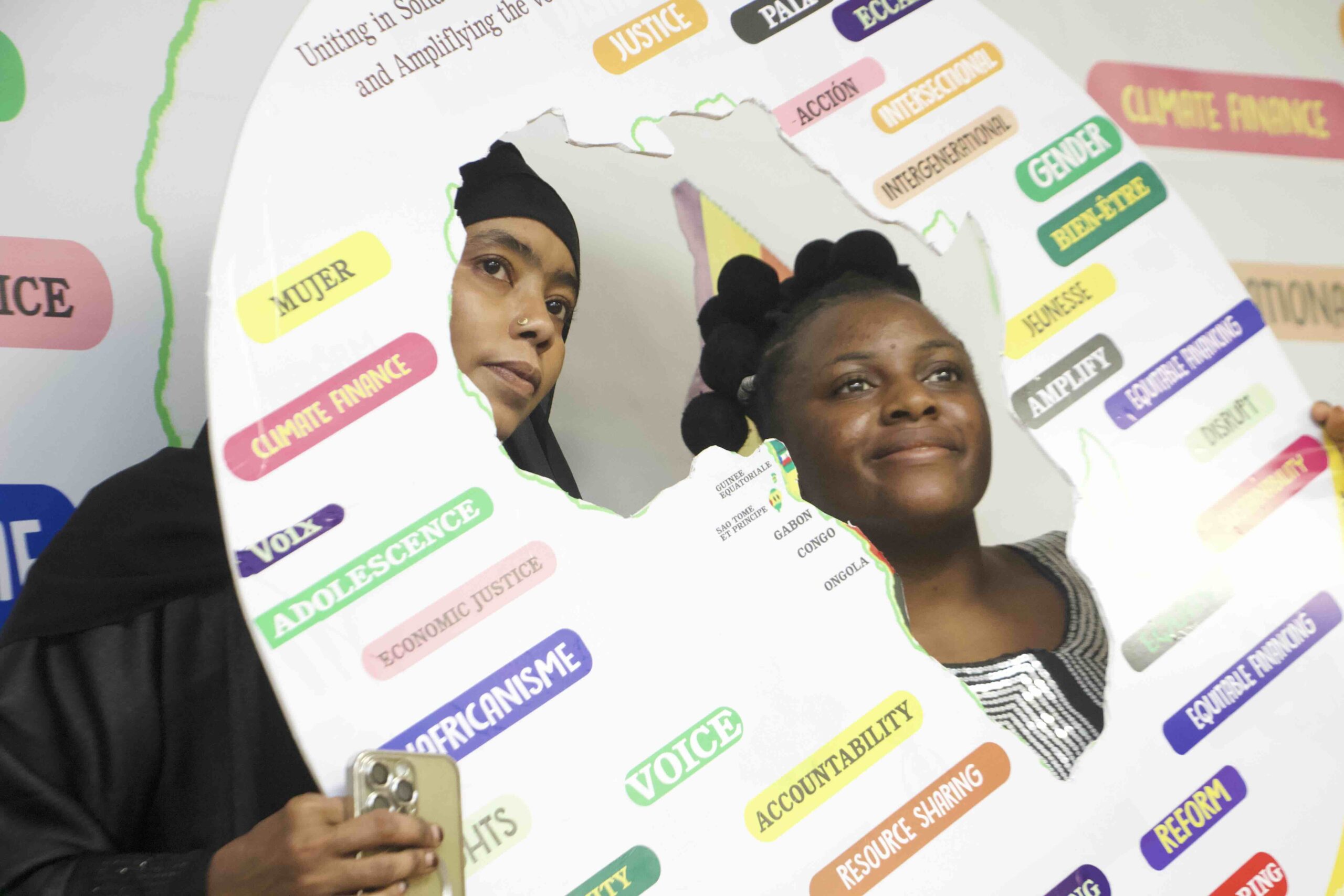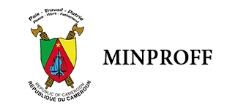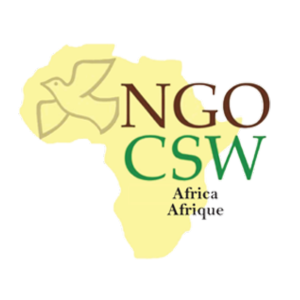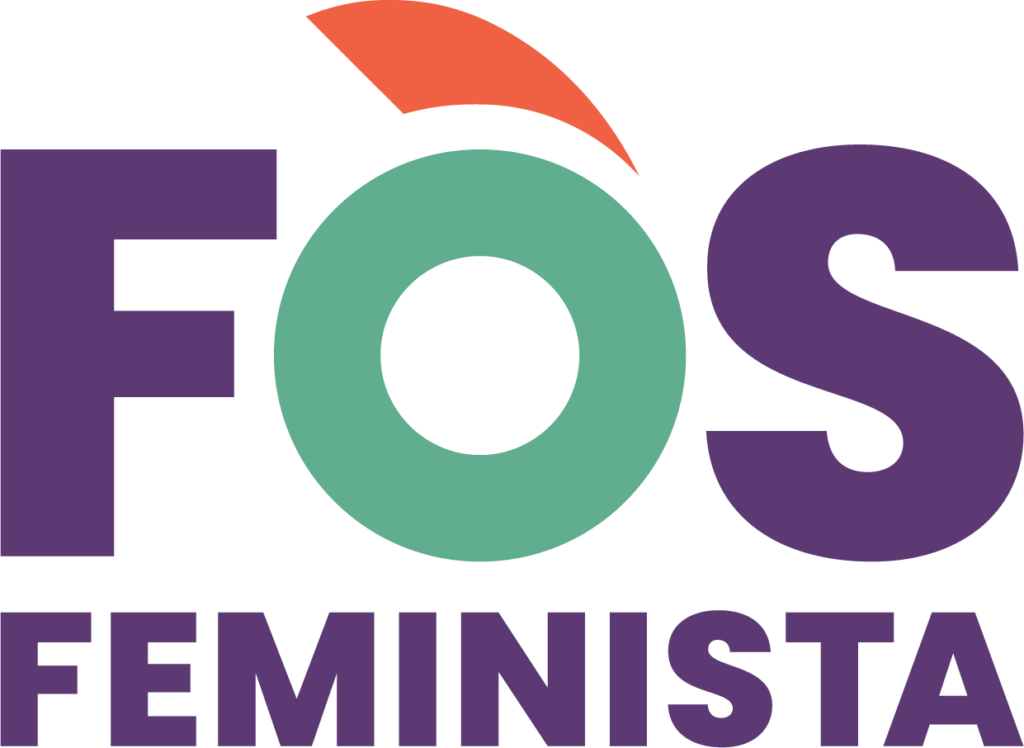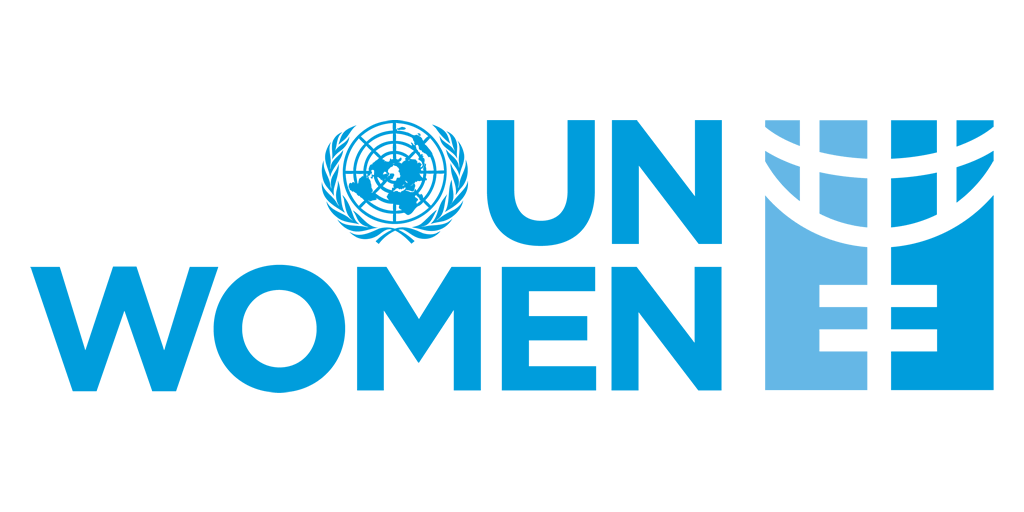Daily theme: Safeguarding Our Gains, Amplifying Our Voices…
SPECIAL THANKS TO:

Uniting in solidarity…
Hotel Residence La Falaise
Yaounde, Cameroon
Central African Feminists’ unite in solidarity to connect, deliberate and collectively amplify their voices for gender equality ahead of the Beijing+30 consultations in 2025
Day 1 – Central African Feminists’ Forum
The Central African Feminists’ Forum on BEIJING +30 went underway in the nation’s capital, Yaounde; bringing together some over 100+ feminist advocates and women rights champions, alongside members of the civil society organizations, government agencies such as the Ministry of Women’s Empowerment and the Family (MINPROFF), academia, young women and girls, climate and environment advocates and gender equality champions and experts, to unite their voices in solidarity; consolidate what has been the gains towards achieving gender equality, and to amplify their voices ahead of the global gathering (BEIJING+30) in March 2025.

Dr. Zoneziwoh Mbondgulo-Wondieh, Executive Director | Opening Session at the Central African Feminists’ Forum on BEIJING +30
“Our meaningful engagement and participation in these three days’ knowledge sharing and exchange learnings will shape the conversations both at the regional and global levels within the Beijing processes” – Dr. Zoneziwoh Mbondgulo-Wondieh
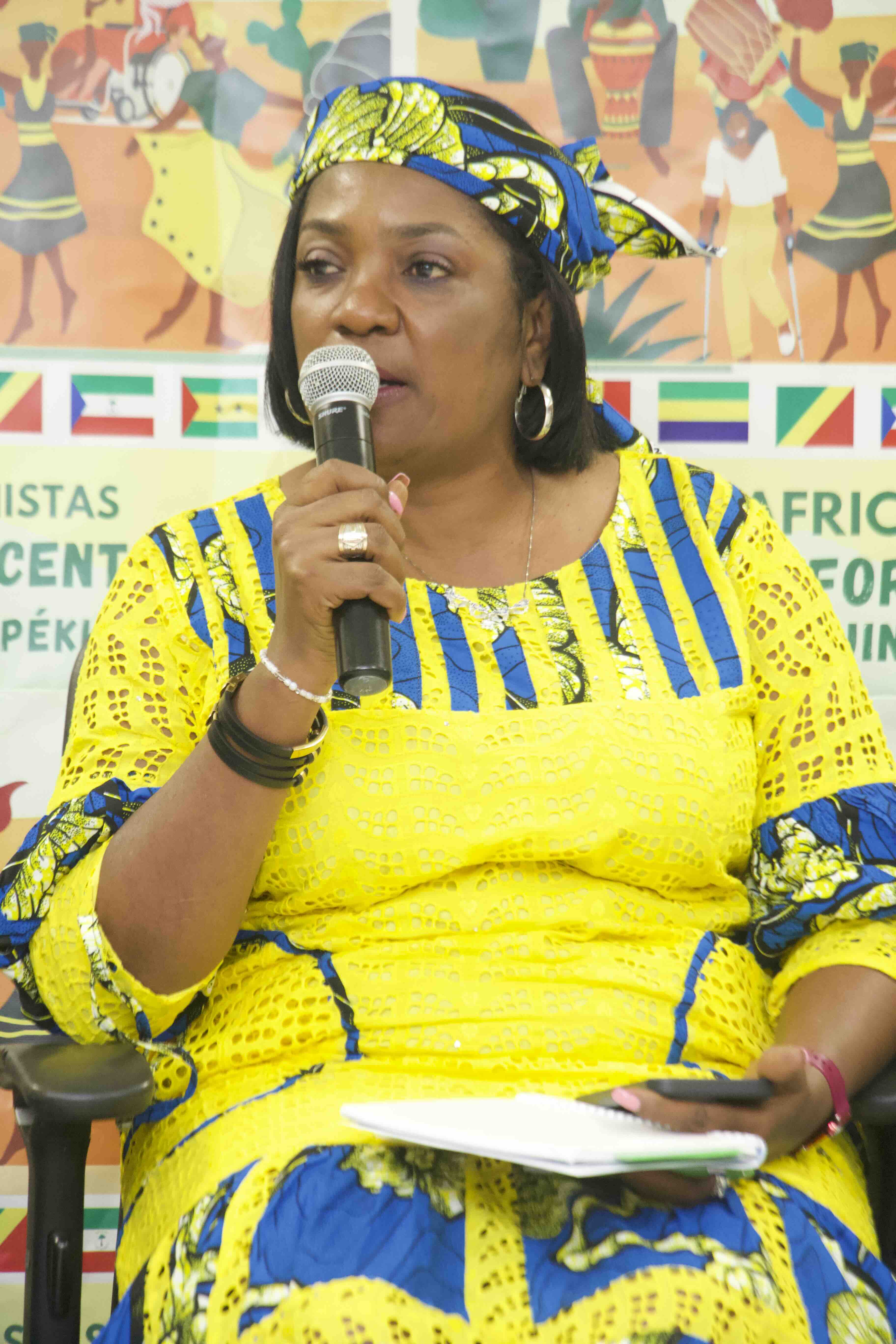
Madame Beatrice Ndefon, Member of #GenEgaliteECCAS
About #GenEgaliteECCAS
On the wake of the day’s discussions, Mme. Ndefon Beatrice, Member of the #GenEgaliteECCAS Movement introduced participants to the subregional feminist movement; with its members across the different ECCAS/CEMAC countries; represented in the forum, to the mission and vision of the movement.
GenEgaliteECCAS is a feminist movement uniting Women-Led Organizations (WLOs) across Central Africa to champion gender equality. Established in 2020, it emerged from collaborative efforts during regional forums, particularly the Pre-CSW62 and Beijing+25 processes. The platform fosters solidarity, collective action, and advocacy for women’s rights, with active participation from 8 of the 11 nations in the ECCAS region.
GenEgaliteECCAS and BEIJING+30 Central African Feminist Forum
She emphasized on the need for continuous feminist cross border solidarity towards advancing and promoting women’s rights across the subregion and the continent at large. In her discuss, she highlighted on the journey, history and successes of the subregional movement and how members can join in by registering to the movement.
Key notes on how to become a member:
- Registration is open to both individuals and institutions/organizations
- Individual Membership fee is 25,000XAF/annually.
- Institutional Membership fee is 150,000 XAF/annually (up to 3 members per organization can be represented in the movement)
- Membership dues are paid before the end of the year (Deadline for 2025 – December 5th, 2024)
- For more information, please reach out to programs.wfac@gmail.com
A Chat with Mama
Feminist Fishbowl on Beijing+30
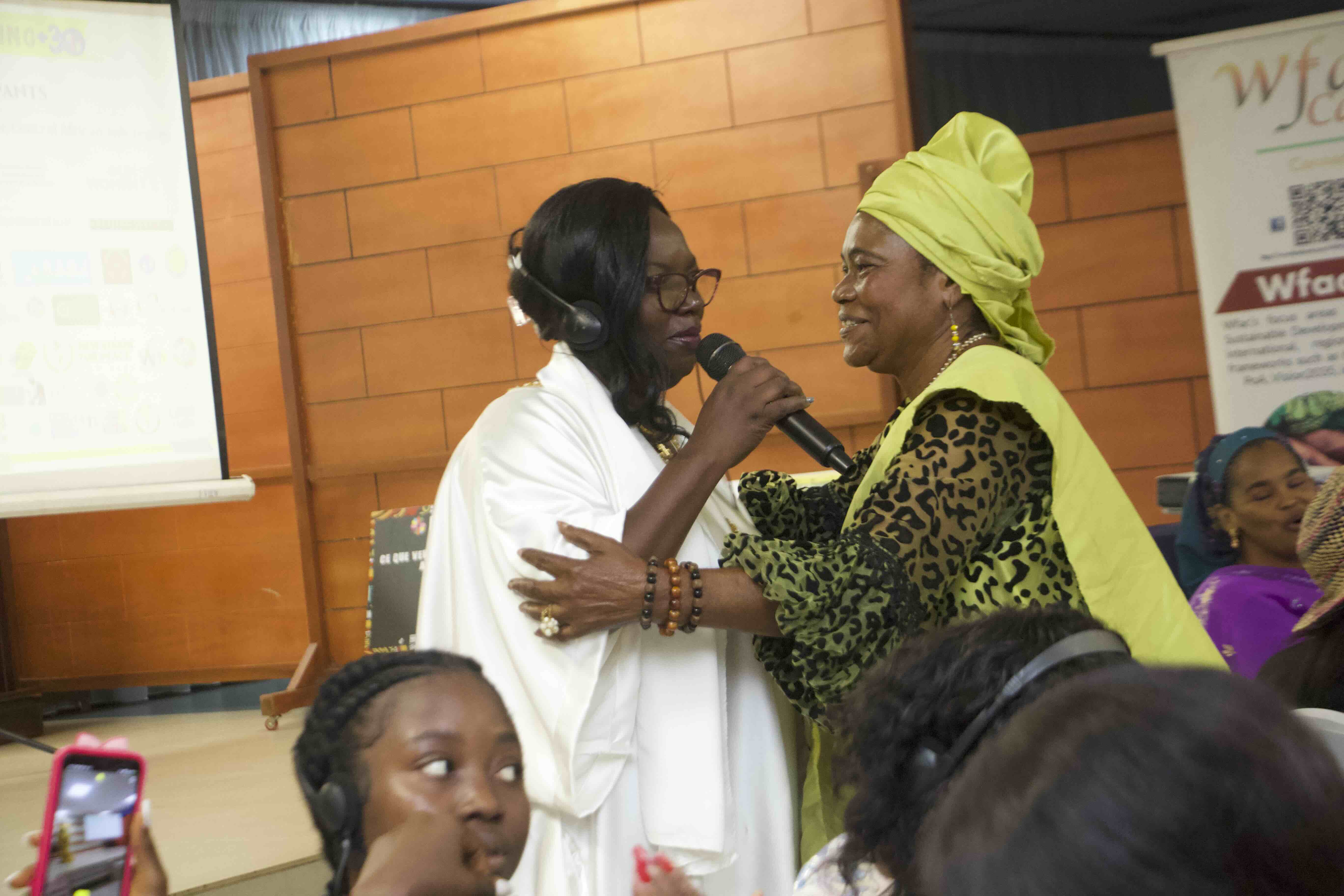
The session featured two of Central Africa’s finest feminists whom together, have led and championed the BEIJING processes from its creation in 1995.
Her Excellency former Minister of Commerce and Industry of the Central Africa Republic, Ms. Léa Koyassoum Doumta who had also formerly served as Minister of Public Health; Minister of Justice; Minister of Family, Social Affairs and National Solidarity in the Central Africa Republic, joined by Cameroon’s own Ms. Dora Senda, Founding President of Collectif des Femmes pour la Protection de l’Environnement et de l’Enfant, popularly known as Mama Dora as feminist sisters called her throughout the forum and beyond.
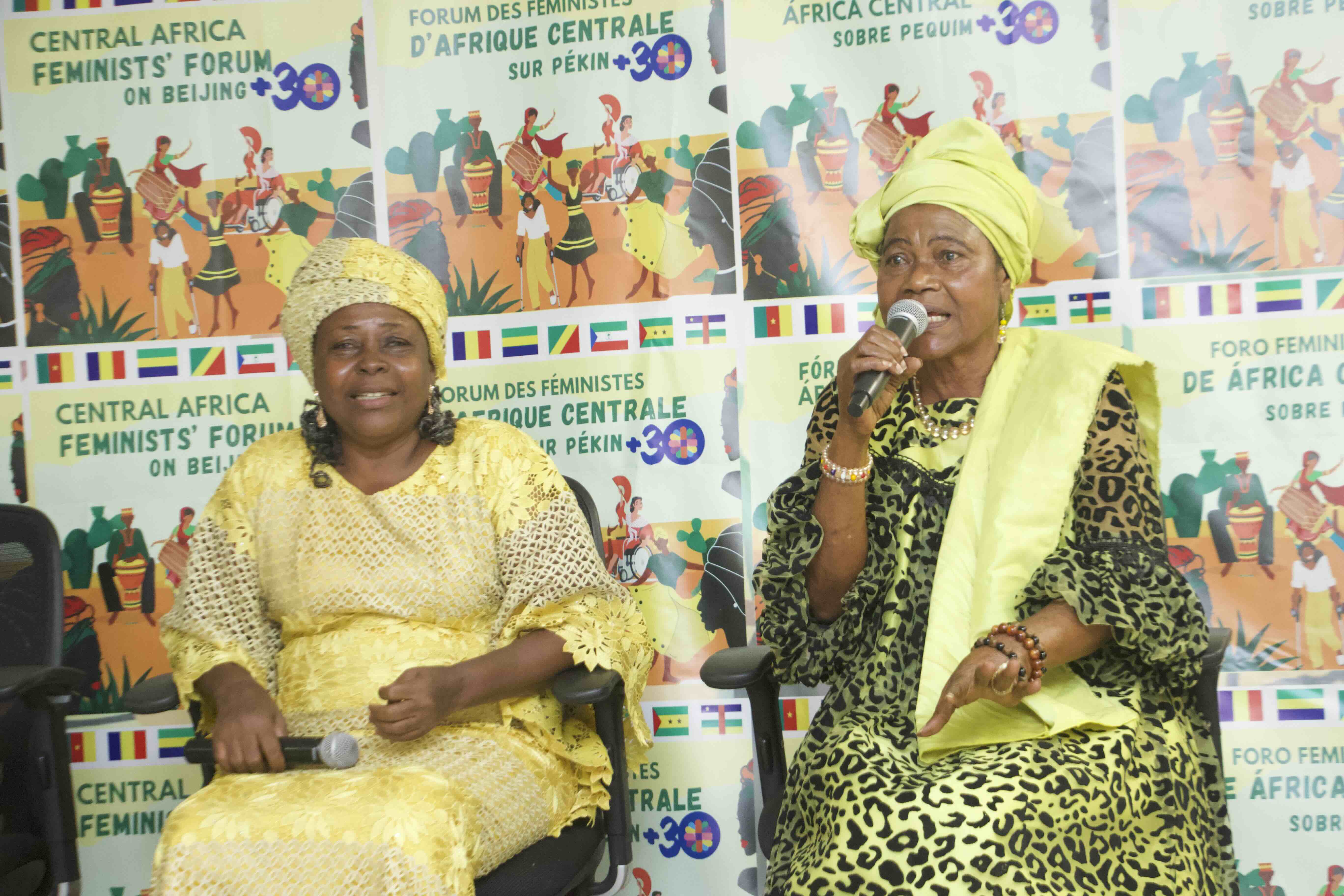
Mama Dora facilitated a heartwarming “Mamas & Daughters” chat, discussing the Beijing Platform for Action (BPfA); focusing on intergenerational knowledge sharing between older and younger feminists; inspiring participants with stories of resilience and activism in Cameroon and the Central African Republic.
The exchange highlighted their stories as they navigated their ways in the world of feminism from its root. The striking facts from their shared realities and stories of resilience and vision ignited enthusiasm amongst participants who could hardly help it but applaud their bravery, commitment and dedication to women’s cause and feminism.
Participants pondered in a bit of shock as to how Africa, most especially why the Central African subregion hasn’t yet fully embraced the fight for gender equality, and what the challenges might be, hindering and constraining women’s full and active participation and inclusion in policy making and public office.
Feminist Movements in Africa: Historicity of Women’s Rights in Africa with focus on BPfA + Beijing +30 Consultation Processes & Beyond
“In order to handle women’s issues, we must apply concrete solutions to the problems affecting women in the cultural and social spheres,” was a key takeaway. The session also reiterated that feminist struggles are inherently political, with gender-based violence (GBV) deeply intertwined with political systems”
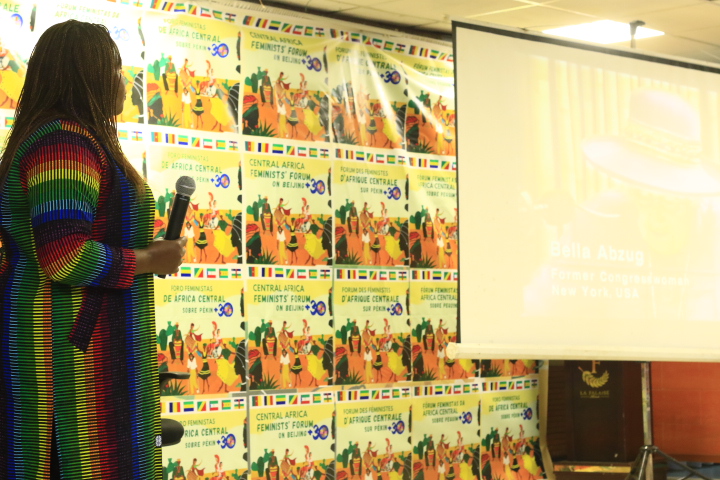
This powerful session, led by Ms. Tek Anne Cheruto from FEMNET, examined the historical trajectory of feminist movements in Africa. The discussion explored the progress made since the Beijing Conference and the ongoing consultation processes for Beijing +30. In her presentation, she emphasized that advancing women’s rights is a collective effort and stressed the importance of intergenerational advocacy.
She further highlighted on/about FEMNET and how to become a member of the network. Visit FEMNET’s official website to learn more about becoming a member.
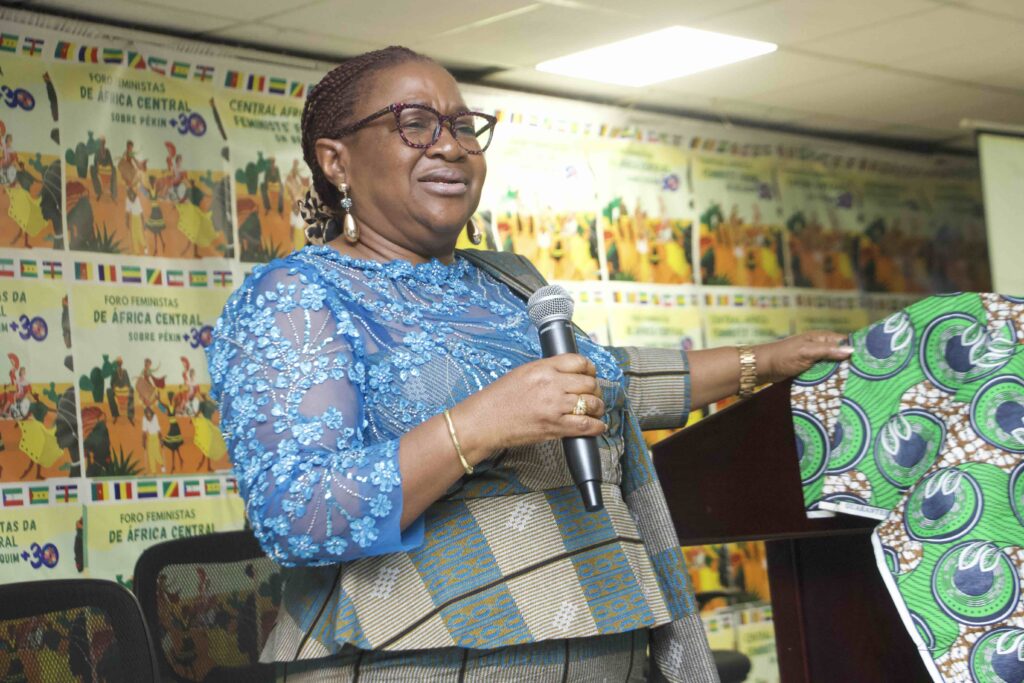
“We want a society of justice, fairness, and equal opportunities.”
Professor Joyce B. Endeley
In her presentation, Prof. Joyce provided a comprehensive reflection on gender equality across the Central Africa region. Her analysis highlighted both progress and ongoing challenges in achieving the goals of the BPfA. She encouraged young leaders to partake in country analysis to reduce shadow reporting and promote accountability. Her talk on the Reflections on Progress of Gender Equality and the Beijing Platform for Action (BPfA) across the Central Africa sub-region was catalyzed with a series of thoughtful reminders and words of wisdom.
She stressed on the importance of empowering women and addressing the political barriers that limit progress, quoting that “in Cameroon, there is a higher rate of women in the tertiary level but the challenge however is that women are not in the place that create and make news” calling on all governments to recommit efforts towards institutionalizing and operationalizing the gender normative frameworks.
Movement Building: Exchange and Learning
The Case of West and Central Africa Feminist Movement Building
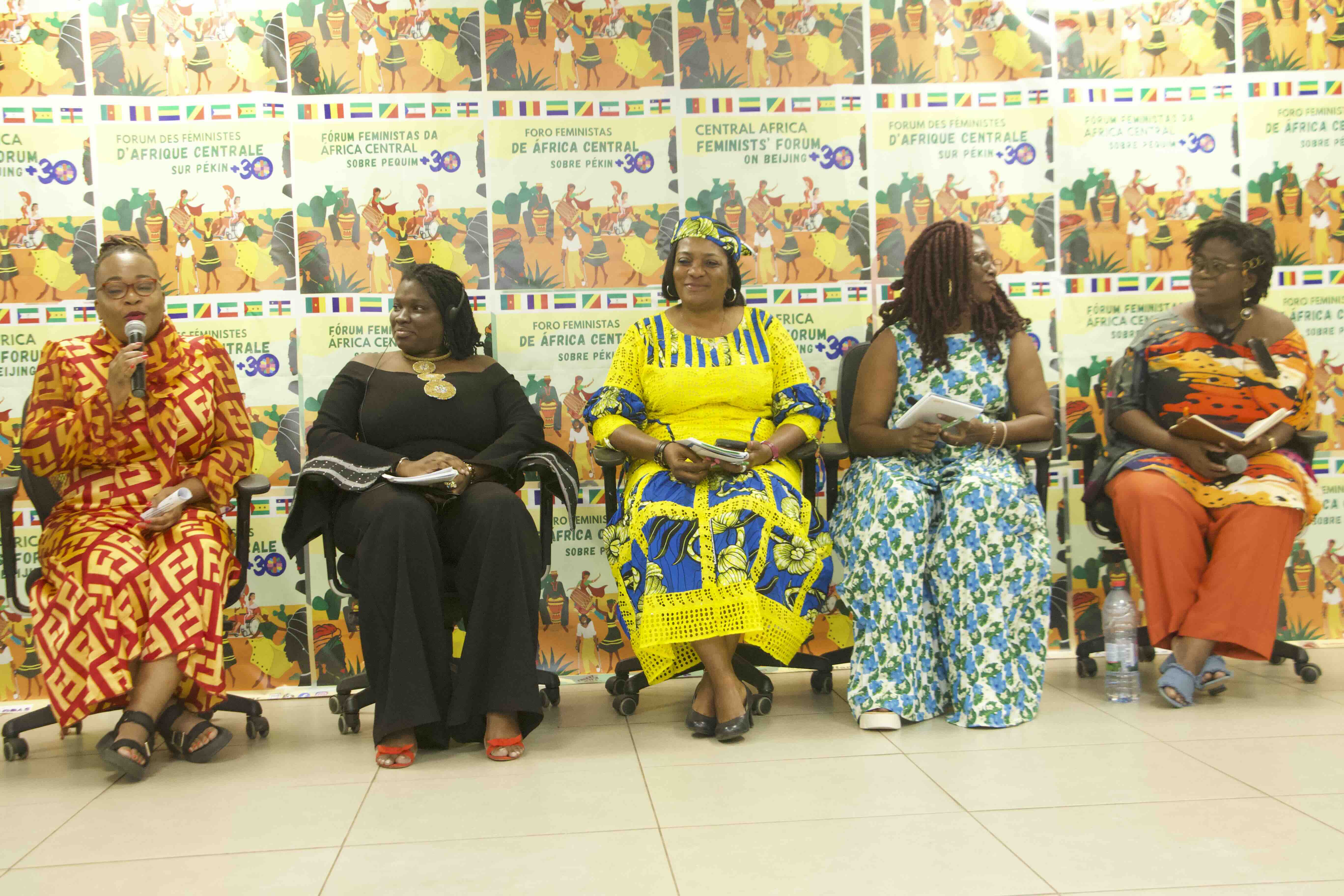
The panel discussion featured influential voices from West and Central Africa, including Mme Teslanik Houndegnon and Marie Laure Edeng. The conversation revolved around feminist movement building, with key discussions on strategies to advance gender equality across the region.
Mme Teslanik reminded participants that “Feminists are conscious of their actions and able to center their issues in a feminist-sensitive approach.” Despite challenges, feminists continue to advocate for women’s rights as part of their identity. She encouraged participants to “keep fighting till they get there and focus on what unites them, not what divides them.”
Marie Laure Edeng urged young advocates to engage in research and seek information to bolster their movements. She also highlighted the importance of persistence and taking risks to achieve feminist goals.
As the day approached its end, Ms. Memory Kachambwa led the closing remarks, urging participants to continue prioritizing feminist issues at both regional and international levels. As the discussions concluded, key recommendations included fostering collaborations, contextualizing movements, amplifying voices, and ensuring no one is left behind in the fight for gender equality.
